It was a sad day today in the Sentinel Daily office as we woke to hear of the untimely death of Grim Reaper vocalist Steve Grimmett, and so we run this piece we did with him in October 2019 on the band’s classic See You In Hell album in memoriam… RIP.
We’re going to go back and cover your thoughts and memories about the recording of the first Grim Reaper album, See You In Hell… If I can take you back to that time – what was the mood of the band heading into the recording sessions? “It was pretty exciting really, because we’d only ever recorded three songs in a twenty four track studio up to that point. So we were excited to record all the songs we’d prepared for the album. Going away for a week, to do the recording, that was all new to us. I think the whole thing took us four days to record, everything was played live. A few guitar and vocal overdubs and some backing vocals after that. It was a fairly quick thing! It was good. All in all it was just very exciting to think that our music was going to be released, very cool”…
How did you get involved with the Ebony label? I remember at the time that Kerrang! magazine always portrayed the label’s owner, Darryl Johnston as a loveable rogue. “He certainly was, but he did us a lot of harm in the long run because he was a bloody greedy man! He always wanted more. And he was getting an awful lot of money but he was also stealing ours. (British TV Channel) Channel Four did an exposé on him because he was charging bands to be on a compilation album, which was illegal. And he was using our success with RCA in the states – ‘look what I did for Grim Reaper!’ when the fact was he didn’t do anything. But that’s another story”.
We’ll get into the album. then. Track one was See You In Hell. “Nick (Bowcott, guitars) was at university at the time, he used to come back to rehearse at weekends. One weekend he came back and said ‘I’ve got a great idea!’ – he wanted to do a song called See You In Hell. I said ‘Okay, sure’. He gave me no other instruction other than that! He’d come up with a riff and that was about it. I went home. I was taking a dump and I thought I’d write some lyrics at the same time… Most people think it’s about seeing ‘you’ in hell, but it’s nothing to do with that. Basically it’s about the first temptation of Christ. Most of the songs on See You In Hell were a collaboration between me and Nick. He would present us with a riff and I would come up with a melody and lyrics. Or we would write them together in rehearsals. That’s basically how it was done”.
Song two was Dead On Arrival. “Dead on Arrival is a song about a friend of mine who died in a car accident on the M4 Motorway. Somebody had got drunk or something, mounted the central barrier and gone straight into the cockpit of the car coming the other way. My friend and his wife were killed outright. So that is what the song is about”.
Track three – Liar. “That’s a song about a girl I’d been going out with at the time, She cheated on me, it’s a s simple as that!”
Track four was and is entitled Wrath of The Ripper. “All about Jack the Ripper and the streets of London. I’ve got a bit of a fascination about that subject. I’d followed all the stories that had come about, so I thought I’d write about it. Again, pretty simple!”
When you went in, had you done a bit of what they now call pre-production? It sounds like all the songs were pretty much ready to go and that Darryl Johnston didn’t have much input as a producer. “No, nothing at all. He put his name down as producer but he didn’t do any production. He just recorded it. The only time we had any ‘production’ was on the last album we did for RCA (1987’s Rock You To Hell) where Max Norman came in and fiddled with a few tracks. But Darryl certainly didn’t do anything like that”.
Next track is Now Or Never. “That came about… I was with a friend of mine, who I am still really good friends with… I’m not sure when it was but we were sitting at the kitchen table in his mum and dad’s house. She was saying ‘do you want any toast?’ and he couldn’t make up his mind! She was saying ‘come, on, now or never!’ and I thought ‘oh yeah, great title!’. So that’s where that came from!”
Inspiration can come from anywhere! “It certainly can, and it did! I’ll never forget it. It’s quite funny because I hadn’t seen the friend, Tim, for many years as I’d moved a fair way away from the town we both lived in. Then I saw him at my brother’s funeral. Shortly after that my son announced he’d started seeing a girl. I thought ‘hang on a second, I know that surname – is her dad Tim?’. He said yes, so now our kids are dating!”
Track six – Run For Your Life. “I think that was a song about being involved in a battle. Being overrun by your opponents and having to haul arse to get out of there!”
The next track interests me after what you’ve said about the lack of production on the album. I was listening to the album again shortly before we started this interview, and it seemed to me that this track, which is The Show Must Go On, seems to have a different, ‘bigger’ snare drum sound on it, almost to make it a bit more dare I say it ‘radio friendly’. Did you put a bit more effort sonically into this track? “Yes, definitely. That was partly by our idea, but most bands then were always putting ballads on their albums. I didn’t have anything to do with the writing of that track, it was written by the previous singer that Nick had had. But yes, if you think back to Whitesnake on the 1987 Album they had Is This Love. Quite a few quid was spent on the snare drum sound on that song I should think! So even though it was written way before 1987 we did treat it in the same sort of way”.
I’m glad I wasn’t just imagining it! The last track was All Hell Let Loose. “Basically that again was just a made-up story… ‘if you don’t do this or that all hell’s going to break loose’. Nothing more, nothing less. Nothing behind the lyric – it’s just a three and a half minute story”.
So that’s that – were you happy at the time with the finished product? “Yes, considering it was our first time in a studio together as Grim Reaper. I’d already done an album with (fellow Brit metallers) Chateaux, (1983’s Chained And Desperate, also on the Ebony label) just to help out because they didn’t have a singer. But as it was our first product we were very happy with it. The excitement was that it was going to get released; I know we ended up falling out with Darryl Johnston but at the end of the day he gave us our break and I’ll always be grateful for that. It’s exciting to have someone backing your songs. But there would have been a lot more success to be had if he hadn’t have been such a greedy man, which is a shame”.
I don’t want to make this too much about my recollection of the time, and I’m again interested in your thoughts on the lack of production, but for me that raw edge that you and bands like Tokyo Blade had was a real point of difference when you consider the ‘stadium’ sound of bands like Judas Priest and Iron Maiden at the same time. Do think that heaviness helped you make headway, especially in the states? “Without a shadow of a doubt. I can’t say myself that it was ever the best album – I hear mistakes on it that are blindingly obvious, even though nobody ever says anything! – and that goes to prove that if the songs are strong enough, people will believe in them. The album is still selling today! The first three albums have never been off the shelves. The amount of albums that I sign – vinyl, CD, cassette – you wouldn’t believe. It amazes me how many copies are out there. And I still haven’t had a penny for it!(laughs). I’m still fighting RCA for it today! but we’ll get there”.
Obviously this was the first step of your dream, but did you think for one minute during that week in Hemingborough Hall in 1983 that you’d still be talking about the album to a bloke on the other side of the world thirty six years later? “No! It never even crossed my mind. But to this day I often think If I didn’t play See You In Hell live i’m sure at the end of the show I’d be lynched! It still surprises me how popular that song is. Sometimes we do it as a crowd singalong and it’s incredibly loud. Every time! So if you ask did I think I’d still be talking about it after all this time, then no – but I didn’t think I’d still be playing it either! It’s a real privilege!”


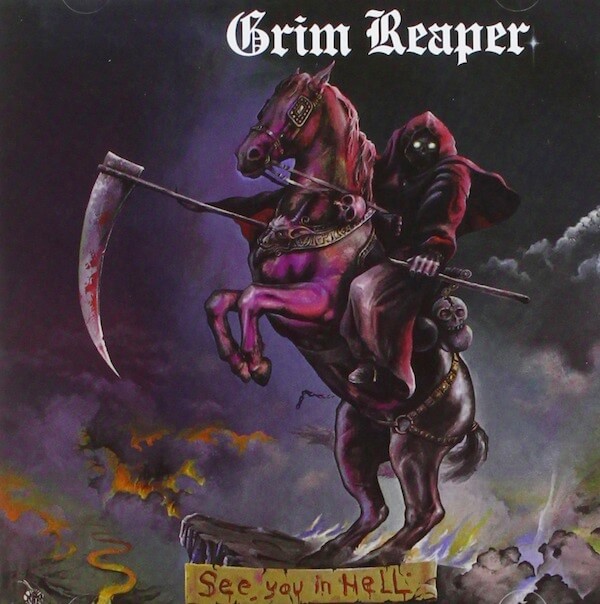
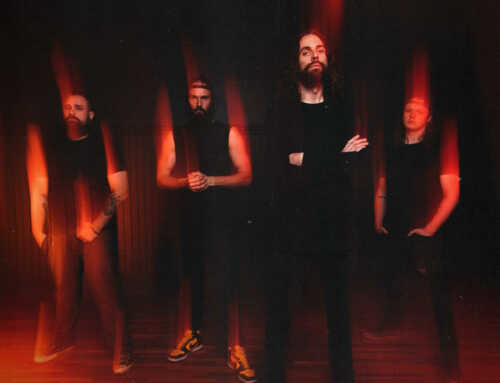
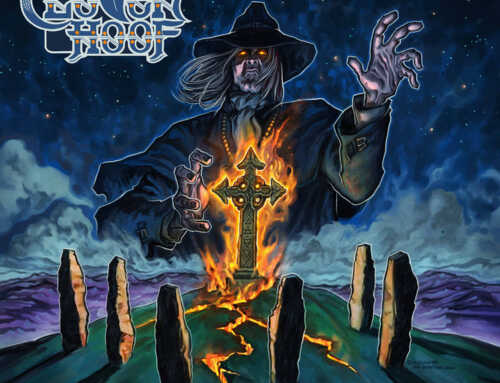
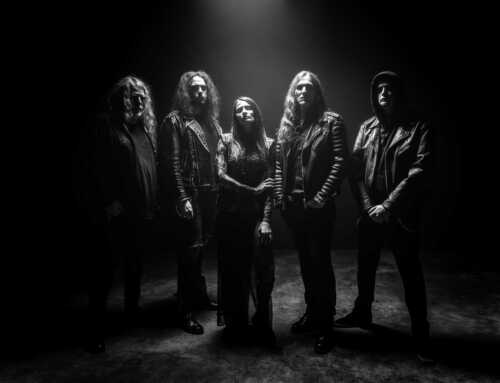
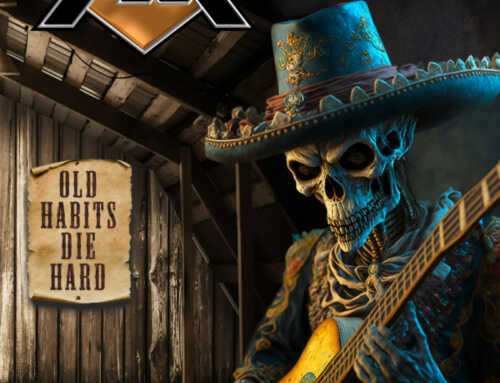
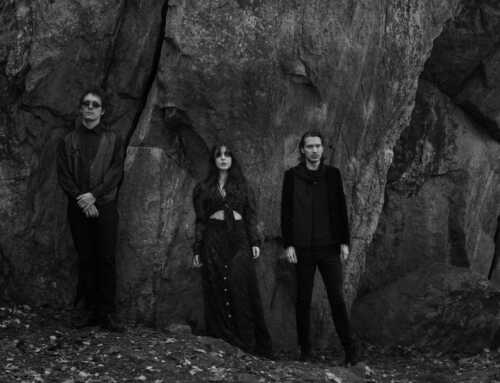
Leave A Comment